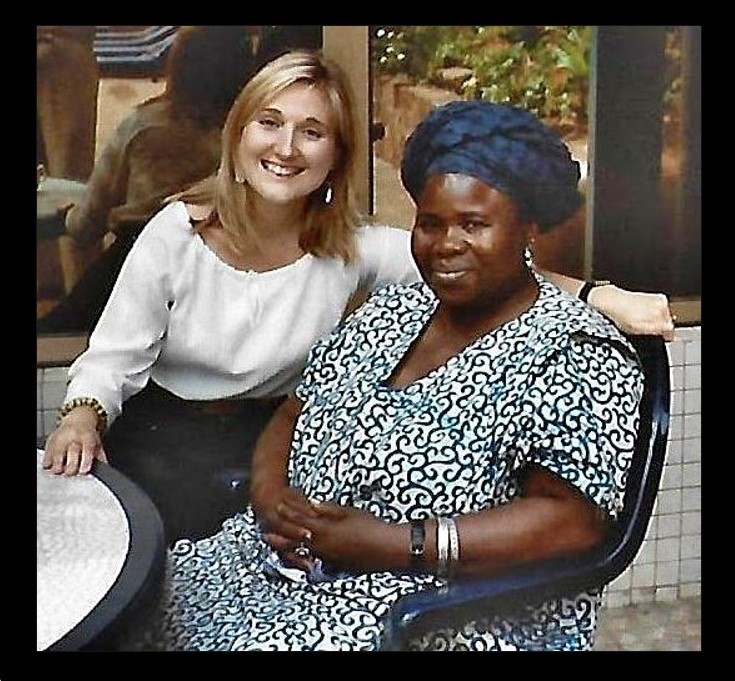“I Have Been Happy Being Me: an African, a Woman and a Writer”
Esther Pujolràs-Noguer
On an ordinary day, two women, Esi and Opokuya, meet by chance at the Twentieth Century Hotel in Accra, Ghana. They take up the opportunity to chat and renew a friendship that several circumstances brought to a halt. This is the scene from the novel Changes. A Love Story that came to my mind when my friend Felicity told me about the unfortunate demise of Ama Ata. It is remarkable the way our neurons weave an electric tapestry in our brains wherein memories are knotted, emotions are revived and past impressions are, unexpectedly, awakened. Why is it that, of all the memorable scenes that Ama Ata Aidoo’s writing has granted me, the unpremeditated encounter between these two friends is the one that I most vividly connected with her?
This random meeting between two women friends is the shadow story that nurtures the larger love story that stands at the core of Ama Ata Aidoo’s Changes. A Love Story. To me, Changes has always been a story of friendship between two women that must fight their feminist ways in a suffocating patriarchal environment that will put to the test the very female friendship that sustains their lives and urges them to move on. The romantic love story that the title of the novel promises is, therefore, enmeshed in a more insidious manifestation of love, the sisterly love between friends which, incidentally, is the spirit that envelops Ama Ata’s entire oeuvre. My claim that the romantic side of the novel is somehow subservient to a story of friendship is indeed audacious and prone to be highly criticized by Academia. But since I am not writing an academic article, I dare to proclaim unabashedly that the woman I met on an ordinary day at a hotel that resembled the fictitious Twentieth Hotel of the novel agreed with my intuitive interpretation of Changes as a story about the ordeals of a friendship that is menaced by the deceitful ─and patriarchal─ undertones of romance.
Ours was not a fortuitous encounter. I went to Ghana to, first and foremost, meet the writer I turned into the topic of my doctoral dissertation. I needed to be enfolded by the physical and emotional surroundings of the world displayed in her fiction, plays and poetry. I admired her so much that I wanted her to like me and was terrified at the thought that maybe she would not like me. When I saw her small figure appearing through the sliding doors of the hotel entrance, the recognition was immediate and the act of embracing her came as something natural. I can say that we hit it off right away. The dissertation came to an end, as all dissertations do, in one way or another, but my commitment to Ama Ata, the writer and the extremely generous woman I had the pleasure to discover, will forever continue. All deaths are untimely and unwelcome; they are brutal, irreversible interruptions of our lives. Sadness encircled me when I first heard about Ama Ata’s death and then, the image of Esi and Opokuya, talking, laughing and sipping their beers, inhabited my mind and I smiled. This imagined picture that exudes womanly camaraderie had the invigorating power of extricating me from incapacitating sorrow. I took the box where I keep my printed pictures of old times and searched for that image that captured one of the most fateful moments of my life: my meeting with Ama Ata. I am so sad but so honored to have been offered a time and a space to share the happiness of this African woman writer whose words, infused with wisdom, beauty and irony, have become part of the indelible memory of “woman-ship”.

